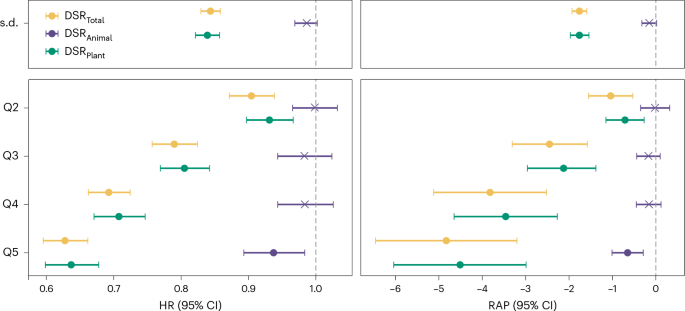
The European Investigation into Cancer and Nutrition (EPIC) study has revealed that biodiverse diets can significantly reduce greenhouse gas emissions, optimize land use, improve mortality rates, and enhance nutritional adequacy across Europe. This comprehensive study, coordinated by the International Agency for Research on Cancer (IARC) and Imperial College London’s Department of Epidemiology and Biostatistics, underscores the multifaceted benefits of dietary diversity.
The findings come at a crucial time as Europe grapples with environmental challenges and public health issues. The EPIC study, supported by a network of national cohorts and various research institutions, provides a robust framework for understanding how dietary choices can impact both human health and the environment.
Research Backed by International Collaboration
The EPIC study is a testament to international collaboration, with financial backing from organizations such as the Danish Cancer Society, the German Cancer Research Center, and the Swedish Cancer Society, among others. This extensive support network highlights the global interest in addressing the intertwined issues of diet, health, and environmental sustainability.
According to the study, biodiverse diets not only contribute to better health outcomes but also play a pivotal role in reducing the ecological footprint. The research emphasizes that a shift towards more plant-based and varied diets could lead to significant reductions in greenhouse gas emissions and more efficient land use.
Expert Insights on Dietary Impact
Experts in nutrition and environmental science have long advocated for dietary diversity as a means to improve health and mitigate climate change. Dr. Paul Verhoeven, a leading researcher at the NIHR Global Health Research Centre on Non-Communicable Diseases, notes that “the integration of diverse food sources into our diets is crucial for both personal health and the health of our planet.”
“Biodiverse diets are not just a trend; they are a necessity for sustainable living,” Dr. Verhoeven emphasized.
Meanwhile, E.K.C., supported by Türkiye’s Ministry of National Education, highlights the educational aspects of promoting dietary diversity. “Educating communities about the benefits of biodiverse diets can lead to lasting changes in consumption patterns and environmental impact,” she stated.
Historical Context and Future Implications
The concept of biodiverse diets is not new. Historically, many cultures have thrived on diverse diets rich in local plant and animal sources. However, the modern shift towards monoculture agriculture and processed foods has led to a decline in dietary diversity, with significant implications for health and the environment.
The EPIC study’s findings suggest a return to more traditional, diverse diets could be key to addressing current health and environmental challenges. By promoting a variety of food sources, Europe could see a reduction in diet-related diseases and a decrease in environmental degradation.
By the Numbers: The EPIC study indicates that adopting biodiverse diets could reduce greenhouse gas emissions by up to 30% and improve nutritional adequacy by 20%.
Looking Ahead: Policy and Practice
The implications of the EPIC study are far-reaching, suggesting that policymakers should consider promoting dietary diversity as part of public health and environmental strategies. Initiatives that encourage local food production and consumption could play a significant role in achieving these goals.
Furthermore, the study highlights the need for continued research and collaboration across borders to fully understand and implement the benefits of biodiverse diets. As the world faces increasing environmental and health challenges, the findings of the EPIC study provide a hopeful path forward.
In conclusion, the EPIC study not only sheds light on the benefits of dietary diversity but also calls for a collective effort to embrace sustainable eating habits. As Europe and the world move towards more sustainable practices, biodiverse diets could be a cornerstone of this transformation.





